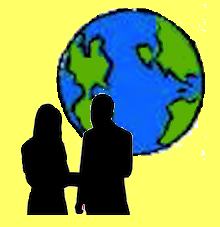 In Afghanistan, I sat in on community meetings and presentations in small towns, where local people, men and women, talked about the community’s most pressing needs and debated how to address them. There were arguments, rivalries, compromise, passion and lots and lots of discussion. Not everyone liked each other, sometimes for personal reasons, sometimes because they had different political agendas. It took forever to make decisions or get things done.
In Afghanistan, I sat in on community meetings and presentations in small towns, where local people, men and women, talked about the community’s most pressing needs and debated how to address them. There were arguments, rivalries, compromise, passion and lots and lots of discussion. Not everyone liked each other, sometimes for personal reasons, sometimes because they had different political agendas. It took forever to make decisions or get things done.
In the small town where I live in Oregon, I sit in on city council meetings, work sessions and forums, where local people, men and women talk about the community’s most pressing needs and debate how to address them. There are arguments, rivalries, compromise, passion and lots and lots of discussion. Not everyone likes each other, sometimes for personal reasons, sometimes because they have different political agendas. It takes forever to make decisions or get things done.
If you have worked overseas with the United Nations, USAID, DFID or any international aid and humanitarian agency, and you are now in your home country, I challenge you to get involved, or at least observe, locally an activity with which you were involved in a developing country. You will find that so many of the complexities, challenges and ignorance you think are typical of a developing country are, in fact, the same as your own home. And, quite frankly, many aid workers are in need of that humbling experience.
And if you want to work internationally in aid and development, I challenge you to get involved locally in efforts that are similar to what you want to do abroad. That could be an agency helping people with HIV/AIDS (and educating the community about such), a nonprofit that helps small family-run farms, a Planned Parenthood clinic, a job-training program, educating people about voting through a chapter of the League of Women Voters and on and on. I’ve written about this before: I’ve said it before, but it’s worth saying again.
Since moving back to the USA in 2009, I still sometimes deploy abroad for brief stints, but in between, one of the ways I keep my skills sharp is by taking my own aforementioned advice, volunteering with a local nonprofits doing similar work to what I’ve done in other countries, serving on a local government’s citizens commission (the one I serve on addresses public safety concerns), and attending city council meetings and work sessions whenever my schedule allows. And if I squint, I often feel like I’m back in Afghanistan. Or Ukraine. Or Egypt. Or Hungary. Or UNV headquarters in Germany.
Also see:
- Is it really *impossible* to break into humanitarian work?
- Isn’t my good heart & desire enough to help abroad?
- “But I wanted to help POOR people…”
- Problems in countries far from home can seem easy to solve
- How to Get a Job with the United Nations or Other International Humanitarian or Development Organization
